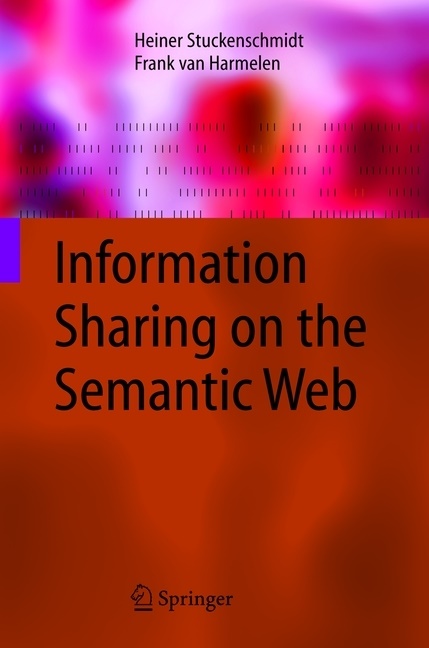Read more
The large-scale and almost ubiquitous availability of information has become as much of a curse as it is a blessing. The more information is available, the harder it is to locate any particular piece of it. And even when it has been successfully found, it is even harder still to usefully combine it with other information we may already possess.
It is commonly understood that this problem of information sharing can only be solved by giving computers better access to the semantics of the information. While it has been recognized that ontologies play a crucial role in solving the open problems, most approaches rely on the existence of well-established data structures. To overcome these shortcomings, Stuckenschmidt and van Harmelen describe ontology-based approaches for resolving semantic heterogeneity in weakly structured environments, in particular the World Wide Web. Addressing problems like missing conceptual models, unclear system boundaries, and heterogeneous representations, they design a framework for ontology-based information sharing in weakly structured environments like the Semantic Web.
For researchers and students in areas related to the Semantic Web, the authors provide not only a comprehensive overview of the State of the art, but also present in detail recent research in areas like ontology design for information integration, metadata generation and management, and representation and management of distributed ontologies. For professionals in areas such as e-commerce and knowledge management, the book provides decision support on the use of novel technologies, information about potential problems, and guidelines for the successful application of existing technologies.
List of contents
Information sharing and ontologies.- Semantic integration.- Ontology-based information sharing.- Ontology languages for the Semantic Web.- Creating ontologies and metadata.- Ontology creation.- Metadata generation.- Retrieval, integration and querying.- Retrieval and Integration.- Sharing statistical information.- Spatially-related information.- Integration and retrieval systems.- Distributed ontologies.- Modularization.- Evolution management.- Conclusions.- Conclusions.
About the author
Dr. Heiner Stuckenschmidt holds a post-doc position in the Knowledge Representation and Reasoning Group at the Vrije Universiteit Amsterdam where he received his PhD for work on Ontology-Based Information Sharing on the Semantic Web. His works includes Semantic Web related topics such as ontology languages, knowledge-based meta data management and robust and scalable terminological reasoning.
Summary
The large-scale and almost ubiquitous availability of information has become as much of a curse as it is a blessing. The more information is available, the harder it is to locate any particular piece of it. And even when it has been successfully found, it is even harder still to usefully combine it with other information we may already possess.
It is commonly understood that this problem of information sharing can only be solved by giving computers better access to the semantics of the information. While it has been recognized that ontologies play a crucial role in solving the open problems, most approaches rely on the existence of well-established data structures. To overcome these shortcomings, Stuckenschmidt and van Harmelen describe ontology-based approaches for resolving semantic heterogeneity in weakly structured environments, in particular the World Wide Web. Addressing problems like missing conceptual models, unclear system boundaries, and heterogeneous representations, they design a framework for ontology-based information sharing in weakly structured environments like the Semantic Web.
For researchers and students in areas related to the Semantic Web, the authors provide not only a comprehensive overview of the State of the art, but also present in detail recent research in areas like ontology design for information integration, metadata generation and management, and representation and management of distributed ontologies. For professionals in areas such as e-commerce and knowledge management, the book provides decision support on the use of novel technologies, information about potential problems, and guidelines for the successful application of existing technologies.
Report
From the reviews:
"The authors ... tackle the difficult task of helping us use and understand the semantic web. ... The book is considered to provide not only a comprehensive overview of the 'State of the Art', but also research recently published developments in relevant areas ... . The text aims to be directed at researchers and students as well as for professionals in many areas such as e-commerce and knowledge management." (Kybernetes, Vol. 34 (7-8), 2005)

